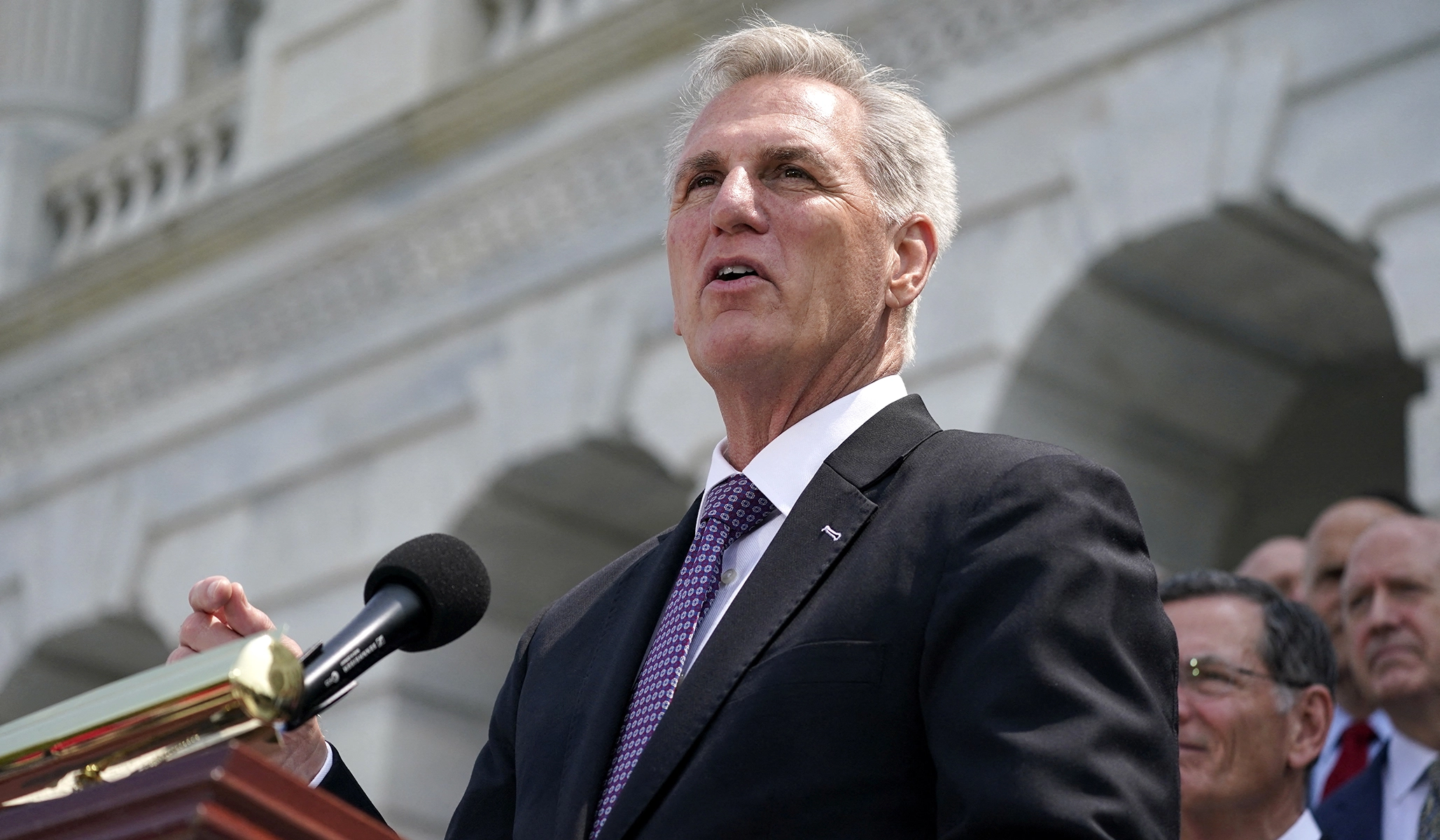Last Tuesday, something remarkable happened in the House of Representatives: a rule was voted down on the floor for the first time in 21 years. Eleven Republican members voted with Democrats against the rule, which dictates which legislation is eligible for formal consideration and what kinds of debate will be permissible. Leaders of both parties have drummed into their rank-and-file members a clear sense that a failure to pass a rule is tantamount to forfeiting the advantages of holding the majority, so the defection of Republicans was significant. However, the defecting Republicans did not actually dislike the rule they defeated, but rather wanted to register their displeasure with the recent debt-limit deal and embarrass their party’s leaders.
The defecting Republicans have expressed a willingness to vote against all their party’s rules unless and until Speaker Kevin McCarthy satisfies their understanding of the terms of the deal they made with him in January to resolve the 15-round speakership battle. This leaves us with an obvious question: Where does this internecine fight leave House Republicans? Is McCarthy effectively hobbled as the leader of his party’s narrow majority, and if so, does he have other options for managing the chamber? Or should we expect these eleven members to somehow call the shots now?
McCarthy only secured the speakership by making a complicated deal with a group of 14 Republican members led by Chip Roy. He agreed to put Roy, Ralph Norman, and Thomas Massie on the crucial House Rules Committee. They were also given an enforcement mechanism: any single member would be empowered to make a motion to vacate the chair (MTV), which amounts to forcing a no-confidence vote on the speaker. Given McCarthy’s razor-thin margin in getting elected, this seemed to many observers to mean that McCarthy’s intraparty critics could blow up his speakership at will.
However, it has now become obvious that the MTV leverage was more apparent than real. A few of the GOP dissenters have voiced a desire to use an MTV to try to topple McCarthy, but they have not done so for a simple reason: they would lose. Democrats, who just saw that McCarthy could make a reasonable ask and negotiate with President Biden in good faith, have little reason to cooperate with the bomb-throwers in the GOP conference to bring him down. McCarthy has no obvious rival with broader backing among Republicans.
The dissidents have now shown that they can block legislation that, unlike the debt-limit deal, has only Republican backing. That is surely giving Republican leaders pause. However, in the current political configuration, in which Democrats control the Senate and the White House, the chance that any bill passed by House Republicans on a straight party-line vote will become law is precisely zero. Failing to pass these bills is thus disappointing as a matter of messaging, but it makes very little practical difference.
If McCarthy’s detractors wanted to become a more potent force for reshaping the House, they would need to have some positive agenda that enticed Democrats. At that point, the three seats on the Rules Committee that seemed to be their ace in the hole might come good. But it isn’t clear that McCarthy’s Republican detractors had or have any plans to make common cause with Democrats on anything.
Meanwhile, McCarthy has a need to work with Democrats on must-pass legislation, including this fall’s spending bills and the national defense authorization bill. There is no reason that, together, they cannot repeat the debt-limit performance and move legislation against the wishes of some dissenting Republicans. And if McCarthy finds his party unable to push partisan messaging bills across the line, it is entirely possible that he might turn his efforts toward improving the prospects for bipartisan coalition-building. In other words, if McCarthy’s critics aren’t careful, they might push him permanently into the bipartisan-dealmaking mode that has so enraged them already.
The rules changes that Chip Roy and his allies secured in the speakership fight are not inconsequential or useless. If McCarthy delivers on promises to allow more free-flowing debate in the chamber, including more open consideration of amendments on the House floor, that could be a great boon to ambitious policy entrepreneurs in the House and to the whole chamber’s ability to prioritize legislating. But it is the moderates in the chamber, rather than the members on either extreme, who are best positioned to take advantage of a regime in which bipartisan coalitions can advance legislation even when it does not have the enthusiastic support of party leaders.

